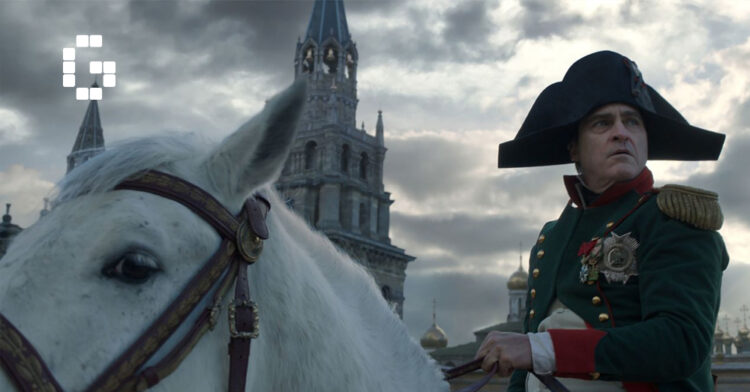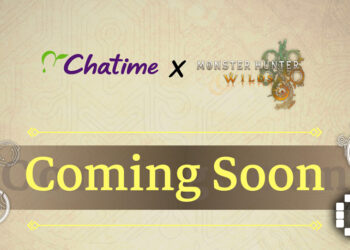Napoleon takes a look at the military commander’s origins and his swift and ruthless climb to emperor, viewed through the prism of his addictive and often volatile relationship with his wife, Josephine.
Napoleon is an odd movie to say the least. While it is a historical drama film based on the French leader Napoleon Bonaparte and his rise to power, the movie itself feels all over the place.

You’d think after having watched this historical movie you’d understand more about one of the most important figures in history or his influence, but unfortunately that doesn’t seem to be the case for Ridley Scott’s rendition of Napoleon.
This 2 hour and 39 minute experience chronicles the rise and fall of the emperor and his love life with his wife Josephine, along with his love letters to her. Alongside are some of the biggest battles he fought and won, and the biggest one that led to his demise, namely the Siege of Toulon (1793), 13 Vendémiaire, Battle of the Pyramids, Battle of Austerlitz and the Battle of Waterloo.

Falls Short
The movie starts off captivating as we get a glance of the Reign of Terror period with a series of public executions against those suspected of being enemies of the Revolution, namely Marie Antoinette. As he rises from general to emperor, we also got a look into his love life, or rather his obsession with Josephine as he makes it seem like he wants to “have” her rather than having it be a genuine intimate relationship. The way Napoleon’s love life is presented in the movie is more or less the same as his warfighting philosphy, speed of maneuver and the seeking of the decisive battle.

In contrast, Josephine’s feelings towards Napoleon lean more towards her own survival. The first time she gets introduced, we see her confined as a political prisoner and the reason she wasn’t executed like her first husband was because she got pregnant in order to survive. As she rises in status, she is able to adapt to the change in social environment in terms of parties, fancy clothes and attention.

This is where the movie in my opinion is a bit messy in terms of its tone. Throughout the entire move, it rushes back and forth between Napoleon’s epic battle scenes and his cold marriage. I personally found the marriage portrayal less and less interesting over time, and was hoping it would focus more on the battles and his strategies towards France’s victory.

The reason why I had hoped for a more battle and strategy focused movie was because of its visual presentation. Ridley Scott’s rendition of Napoleon knows how to deliver cinematic visuals and brutal action. I would say that the best parts of the movie was the battle scenes, as they all felt grand and awe-inspiring. Personally, the most spectacle fight was the Battle of Austerlitz, which took place on icy terrain, showing us the violence from a bird’s eye view of the massacre of the Allied men drowning in cold ponds of blood caused by the French artillery.
Finally, the movie ends with the Duke of Wellington leading a decisive victory over Napoleon’s forces and with Napoleon being exiled to Saint Helena by the British where he then passes away year after his stay there.
Verdict

Overall, it’s a bit hard to recommend the Napoleon movie if you’re looking for a deep dive into him as a figure. But if you’re in the mood for a war movie and don’t mind the historical inaccuracies, you can give Ridley Scott’s Napoleon a try.
Scott has also confirmed a four-hour long director’s cut of Napoleon which will be released on Apple TV+, maybe the director’s cut will do a better job at narrating the story and highlights of Napoleon’s life.
Join Us!
We are recruiting! If you want to break into the gaming media industry, don't miss out on the golden opportunity. Find out more: Malaysia. Overseas.The Review
PROS
- Good action/war scenes in terms of visual presentaion
- Some unitentionally comedic moments
CONS
- Lack of focus on battle/strategies of Napoleon
- Too much emphasis on Napoleon's love life
- Doesn't dive too much into Napoleon as a figure












![[SEA Exclusive] From Shadows to Shipwrecks – Jennifer English Talks About Bringing Emotional Depth to Clair Obscur: Expedition 33](https://cdn.gamerbraves.com/2025/04/Clair-Obscur-Jennifer-English_Interview_FI-360x180.jpg)

![[EXCLUSIVE] Do the Game Interview – An Intimate Look at the Challenges of Game Development](https://cdn.gamerbraves.com/2025/04/Do-the-Game_Interview_FI-1-360x180.jpg)
![[EXCLUSIVE] Interview with the Minds Behind of Den of Wolves – 10 Chambers’ New Sci-Fi Heist FPS](https://cdn.gamerbraves.com/2025/04/Den-of-Wolves_Interview_FI-360x180.jpg)









![[GUIDE] Finding Alma’s Lost Glasses in The Apple of Her Eye Side Quest](https://cdn.gamerbraves.com/2025/04/Alma-Glasses-Quest_Gudie_FI-360x180.jpg)



![[GUIDE] Farming Nightflower Pollen in Monster Hunter Wilds](https://cdn.gamerbraves.com/2025/03/MHWilds-Pollen_Guide_FI-360x180.jpg)